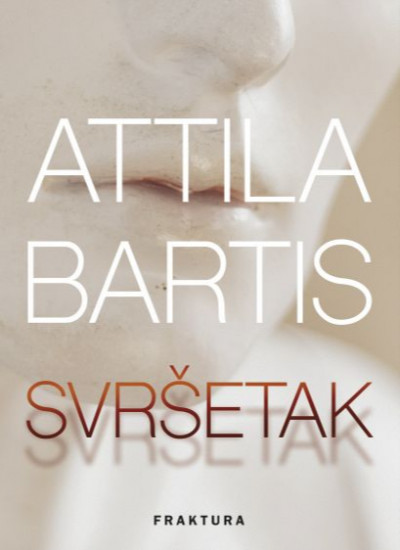The End

András Szabad grew up in a small Hungarian town, loved by his mother, a librarian. In 1956, his father was arrested for participating in the uprising against Soviet occupation, but when the father comes home from prison after three years, completely broken, the mother dies – which marks the end of András’s childhood. He moves to Budapest with his father and soon discovers photography. The camera becomes his passion, his additional eye with which he observes the world around him and never lets it go. The camera is always there, even when he falls in love. Decades later, when he finds out that Eva, a pianist who had emigrated to America (and love of his life), has died, he begins to write down his life. An uncanny coldness and loneliness permeate the novel, which revolves around the question of where does the violence and vulnerability that András feels comes from.
A vége is Attila Bartis’s opus magnum: a work that speaks with relentless accuracy of erotic dependence, lies and blackmail. Novel’s refined structure and sharp sentences, authors extraordinary eye for detail, composition, and powerful visuality, gives us the unforgettable character of András and suggestive atmosphere of communist Hungary. Through alternating memoirs and his reflections, he appears to be a more or less passive, almost indolent individual, an observer of his own life rather than his real subject, someone to whom it all happens. With its distinctive style and superb rhythm, novel carries on some elements of bildungsroman and a memoir; it is an emotionally charged book about love and loss and finding a meaning in art and artistic creation amidst cruel politics and burdensome history.
Attila Bartis was born in 1968 in Târg Mures, Romania. In 1984 his family left Romania because of political repression and moved to Budapest, where Bartis studied photography, which he still successfully practices.
As a writer he gained attention in 1995 with his remarkable short novel A Séta, and three years later he published a collection of short stories entitled A kéklo pára. He gained international recognition with the novel A nyugalom, which was published in 2001 and has been translated into many languages, including Croatian (published by Fraktura). The novel was the basis for his theater play Anyám, Kleopátra which premiered at the National Theater in 2003, directed by Dezső Garas. The novel was also adapted into a movie of the same title and directed by Alföldi Róbert in 2008.
He has received a number of significant literary accolades, among which the Tibor Déry (1997), Sándor Márai (2002) and Attila József (2005) awards. In 2006 he was awarded the Knight’s Cross of the Republic of Hungary. In 2010 he received the Szép Ernő Award for the best play (Romlás) and his novel A vége received in 2016 the Libri Literary Audience Award. In 2018 he became the Laureate of the Hungarian Republic.